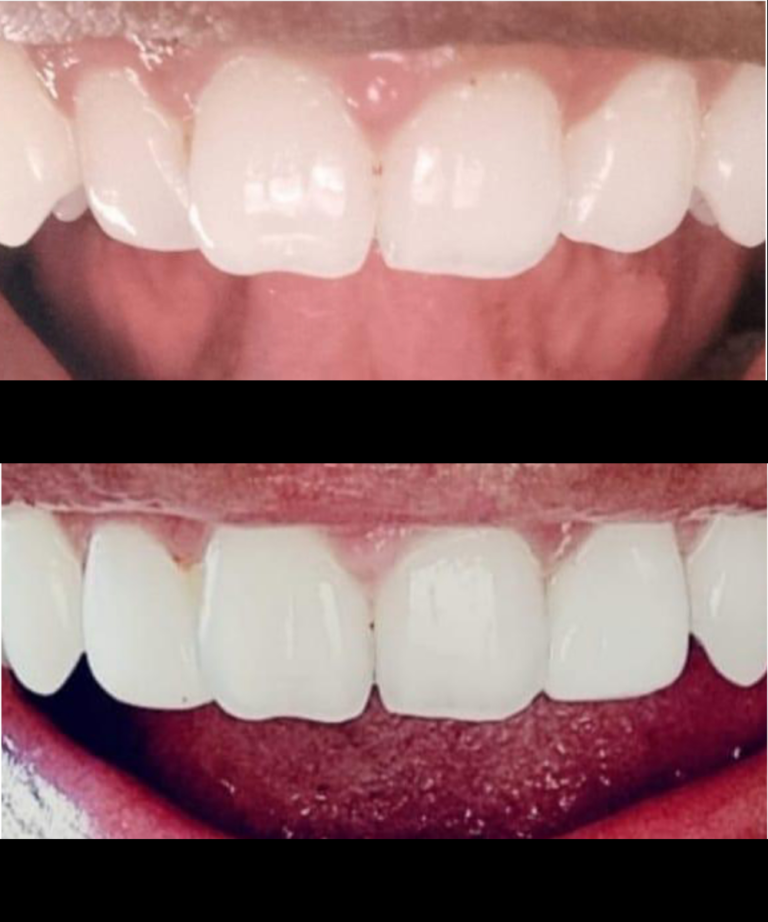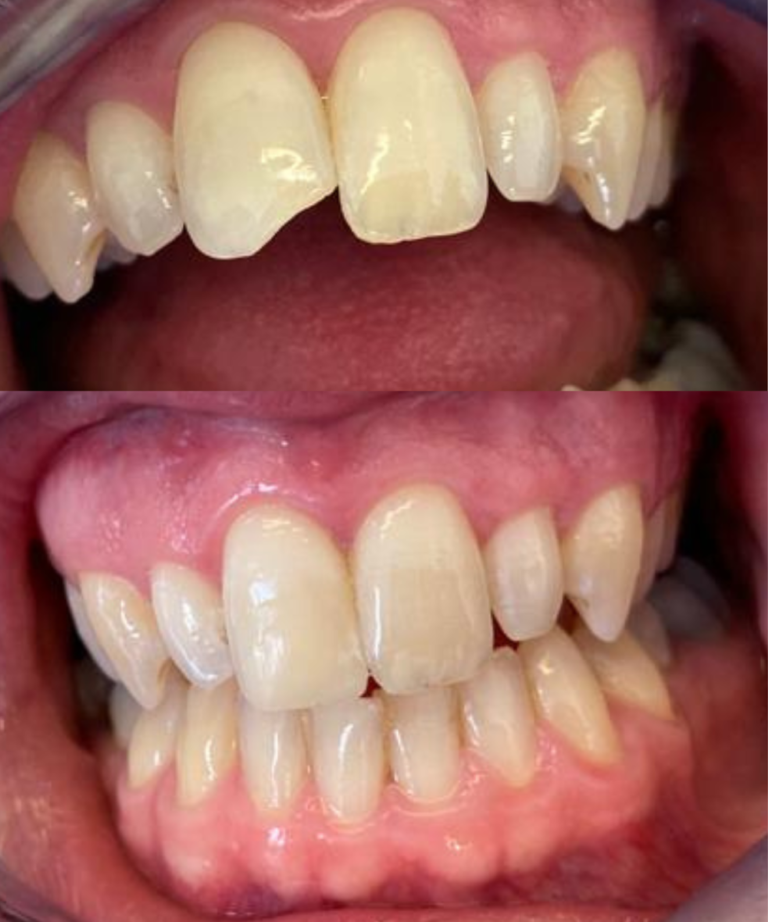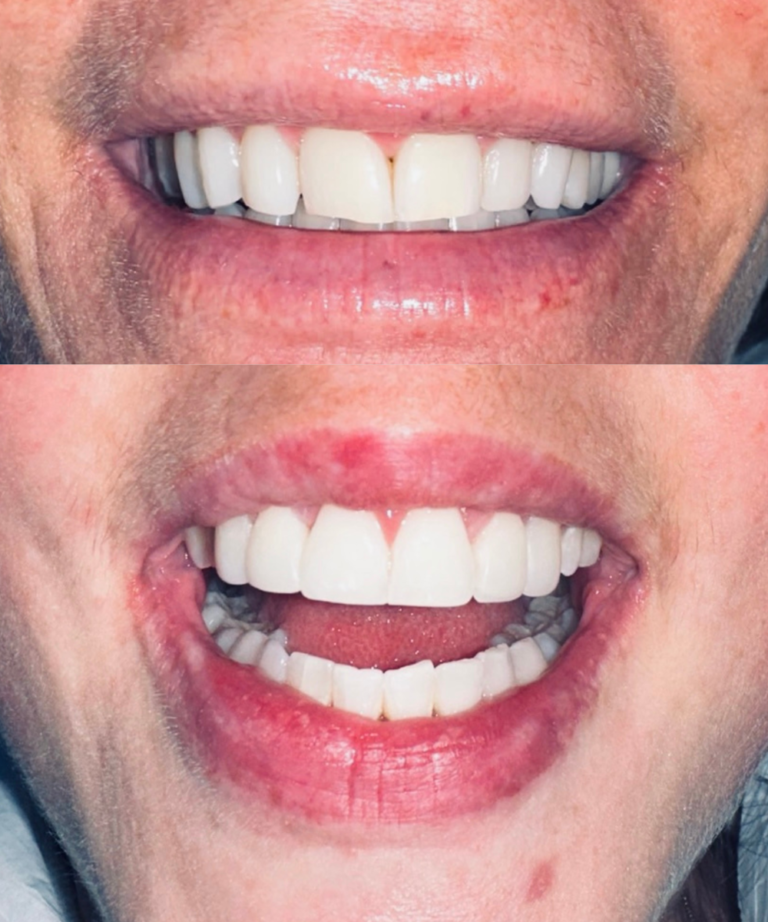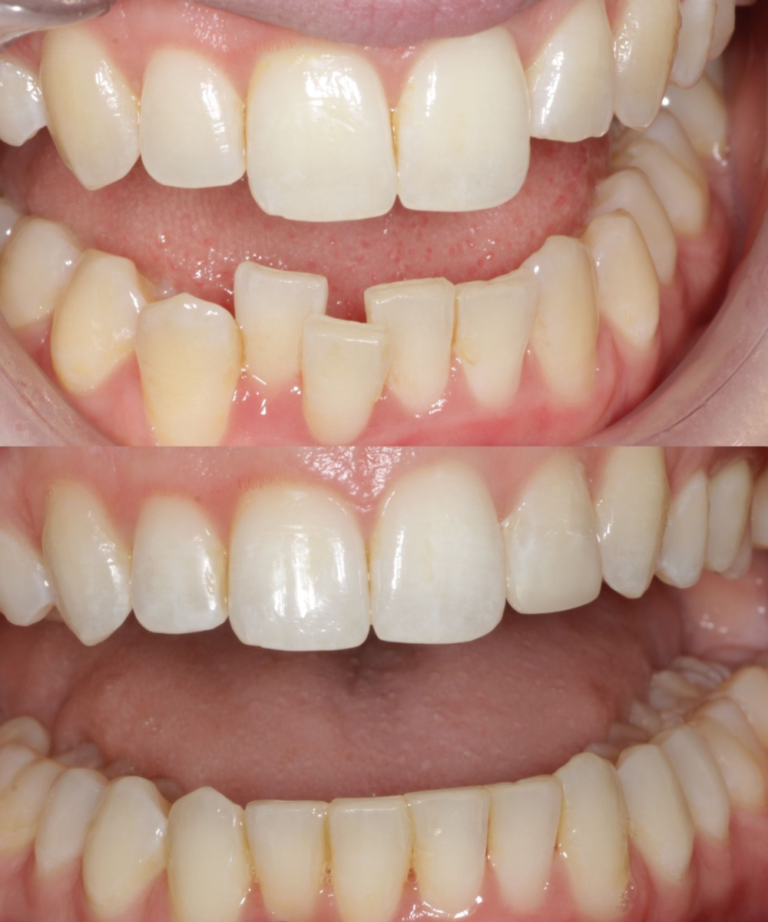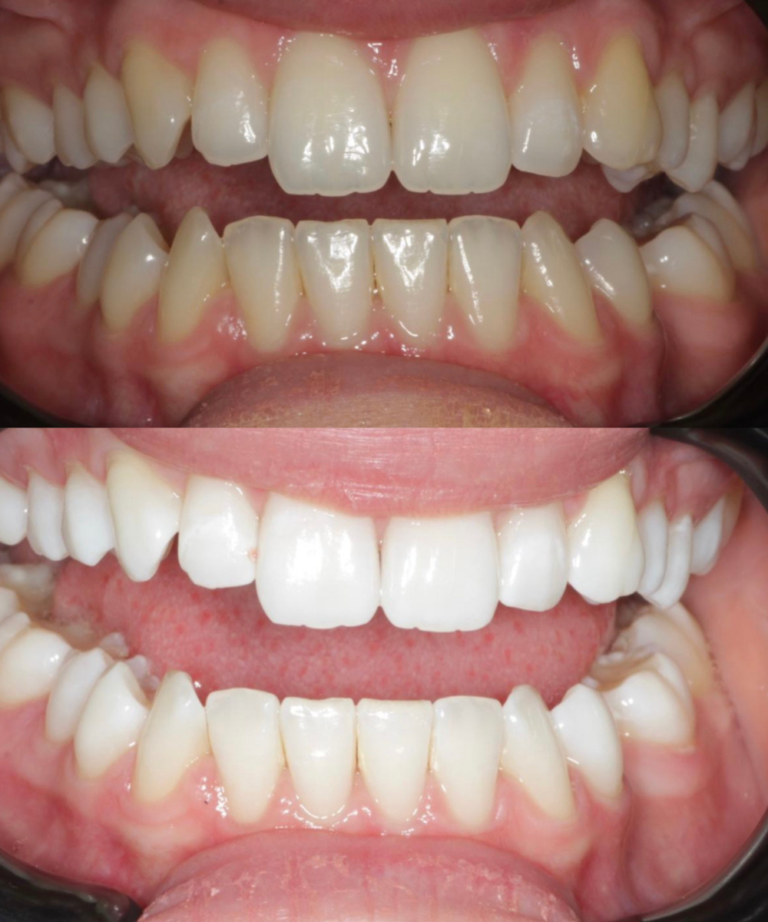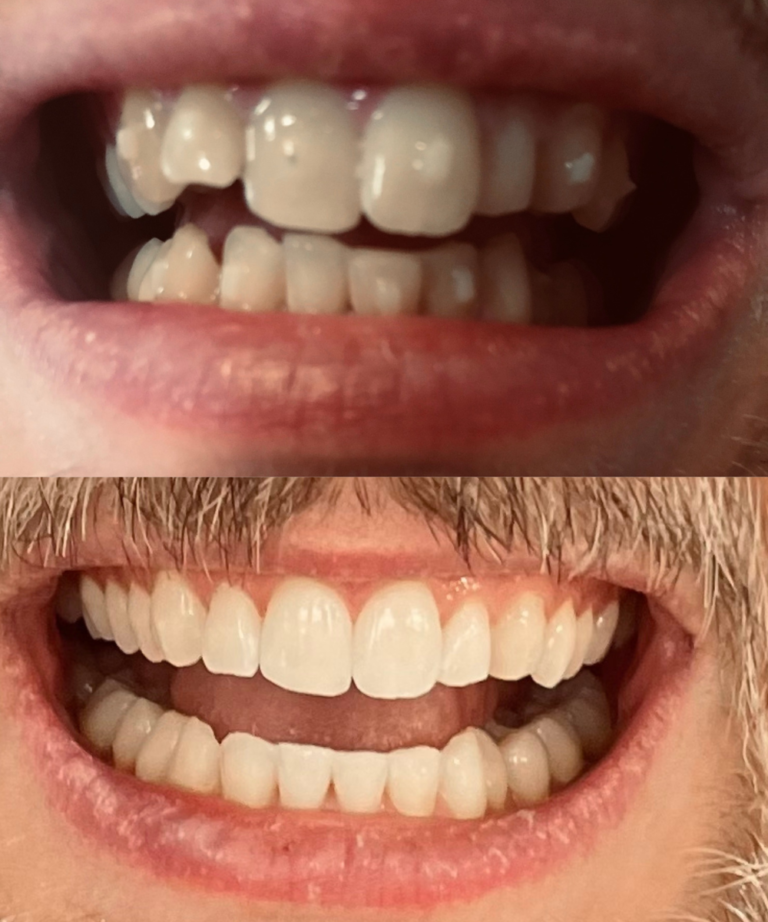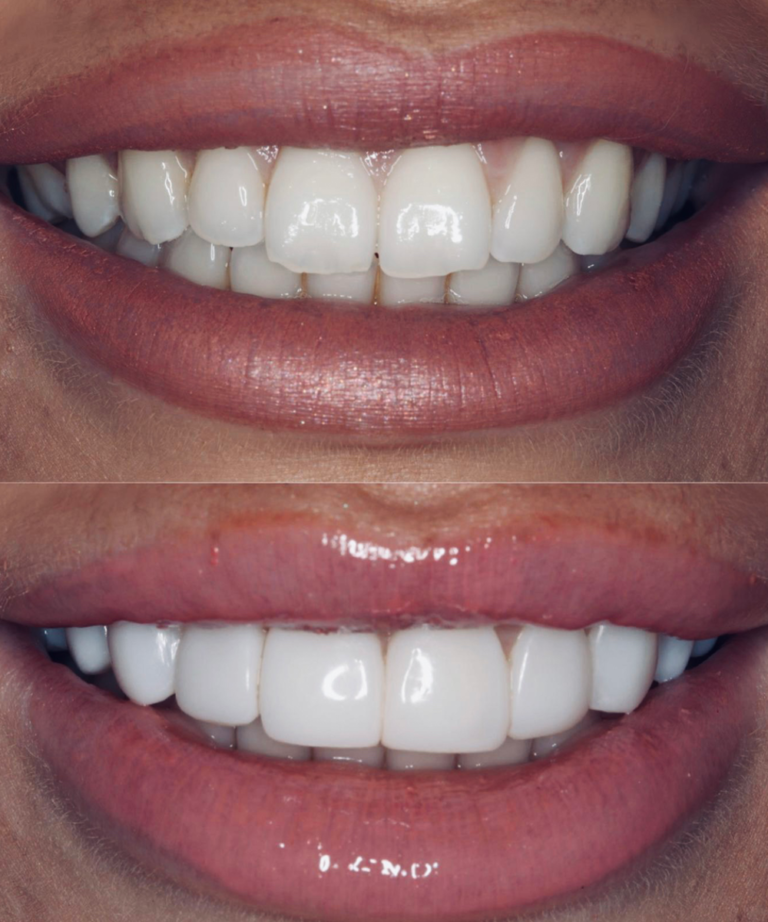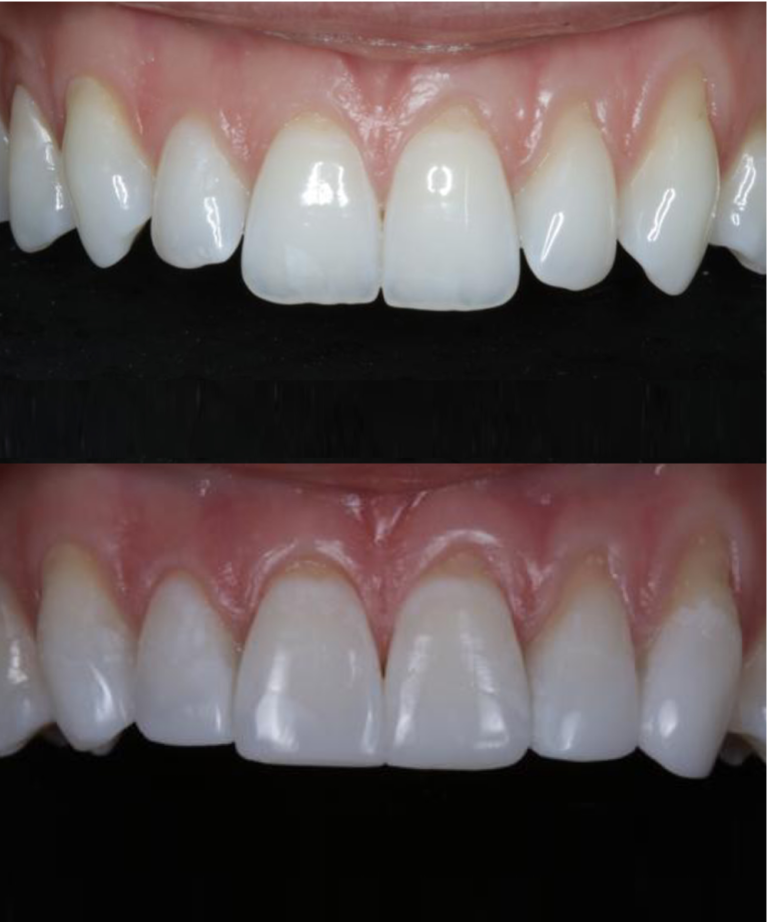COMPOSITE BONDING
Composite bonding is most commonly used to repair a chipped, broken, or cracked tooth, as well as to build more shape onto a malformed, misaligned, or stunted tooth.
While porcelain veneers are caps that fit over the whole tooth, composite bonding (also known as dental bonding) crafts on top of the natural tooth in buildable amounts. This method lets us choose whether to treat specific problem areas or the whole tooth. We can achieve bespoke shaping and shade-match the composite to your smile, so your cosmetic dentistry looks subtle and undetectable while transforming chipped or discoloured teeth. We can do this with you in our dentist’s chair, and the teeth require minimal/no preparation, unlike their porcelain counterparts.
WHY CHOOSE COMPOSITE BONDING TREATMENT?
Composite bonding is a versatile and minimally invasive cosmetic dental procedure that offers several advantages, making it a popular choice for those looking to enhance their smile without extensive dental work.
Minimally Invasive: One of the biggest draws of composite bonding is its non-invasive nature. Unlike porcelain veneers that often require significant reshaping and preparation of the natural tooth, composite bonding involves minimal to no removal of the tooth structure. This helps preserve the natural integrity of your teeth while still achieving significant cosmetic improvements.
Cost-Effective: Composite bonding is generally more affordable than other cosmetic dental procedures such as veneers or crowns. It offers a cost-effective solution for improving the appearance of your smile, making it accessible to more people who want cosmetic enhancements without a hefty price tag.
Immediate Results: The entire composite bonding process can typically be completed in just one dental visit. This means you can walk out of your dentist’s office with a transformed smile in about an hour, making it a perfect option for those looking for quick results.
Customisable: The material used in composite bonding can be closely matched to the shade of your existing teeth, ensuring a natural-looking result. Your dentist can sculpt the composite to correct chips, gaps, and stains, or to improve the shape and contour of your teeth, providing a tailored approach to meet your specific aesthetic needs.
WHAT HAPPENS DURING A COMPOSITE BONDING APPOINTMENT?

Firstly, an initial consultation is required to assess if your oral health is stable and discuss which treatments will help you achieve your desired results. You can choose to have as many, or as little teeth treated as you like.
Composite materials vary hugely, we only use the most premium which is hard wearing and strong, whilst having the aesthetic appearance of enamel. Before applying the composite resin material, the teeth are cleaned and dried well. When applying the composite, it is initially soft and shareable, enabling the dentist to craft it into the shape desired. It is then hardened using a process known as curing, under a bright light. Finally, the composite is polished to perfection for that lasting shine.
How Much Does Composite Bonding Cost?
Whilst composite bonding can be done on a single tooth, Composite Bonding Packages are also available for every level of desire. All of our packages include a Hygiene appointment with Airflow Stain Removal, In-chair and Home Whitening and an Essix retainer to help protect your new smile.
- Single Tooth: £349
- Silver: 4 Composites £1999
- Gold: 6 Composites £2650
- Platinum: 8 Composites £3250
- Diamond: 10 Composites £3499
- Ultimate: 12 Composites £3999
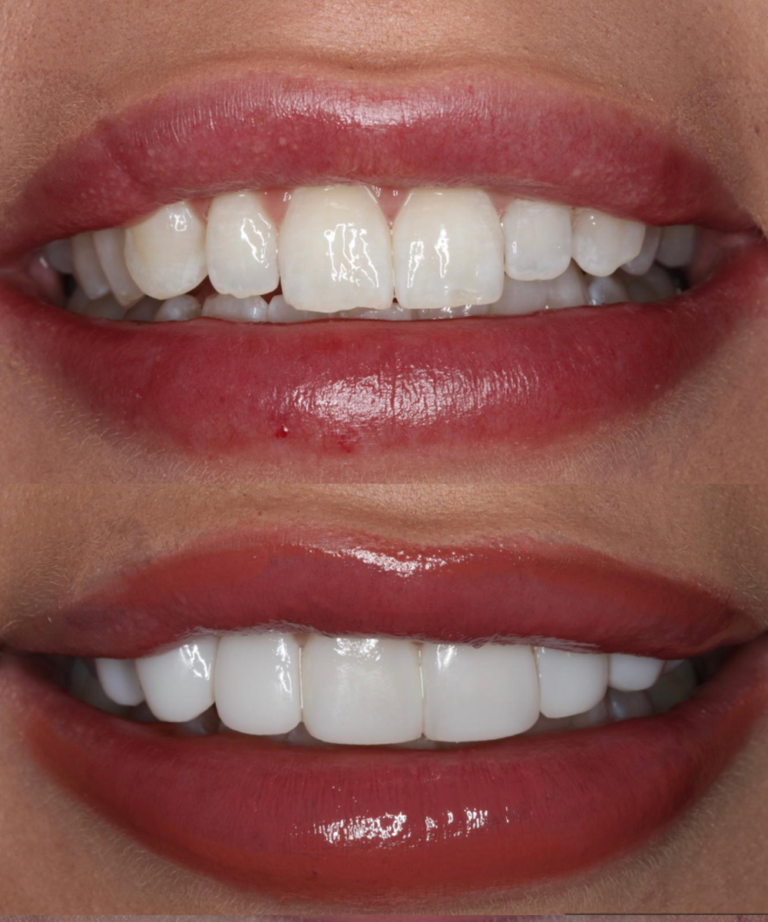
composite bonding aftercare
After undergoing cosmetic composite bonding, it’s important to follow proper aftercare instructions to maintain the longevity and aesthetics of the bonded teeth.
Here are some essential tips for cosmetic composite bonding aftercare:
- Avoid staining substances: For the first 48 hours after the bonding procedure, it's advisable to avoid or minimize consumption of staining substances that can affect the color of the composite material. This includes foods and beverages like coffee, tea, red wine, berries, tomato sauce, soy sauce, and tobacco products.
- Be cautious with your diet: Beyond the initial 48 hours, it's beneficial to be mindful of your diet to prevent staining and minimize the risk of damage to the bonded teeth. Limit your intake of staining substances or rinse your mouth with water after consuming them to minimize contact with the composite material. Additionally, try to cut hard or sticky foods into smaller, more manageable pieces to avoid placing excessive pressure on the bonded areas.
- Maintain good oral hygiene: Practice excellent oral hygiene habits to keep your bonded teeth clean and healthy. Brush your teeth at least twice a day with a medium soft-bristle toothbrush and a non-abrasive toothpaste. Gently clean around the bonded areas, taking care not to apply excessive force that could potentially dislodge or damage the composite bonding. Floss daily to remove plaque and debris from between your teeth, being cautious around the bonded areas.
- Avoid harmful habits: Refrain from engaging in habits that can potentially damage the composite bonding, such as biting or chewing on non-food items like pens, fingernails, or ice. These habits can cause the bonding material to chip or detach from the tooth surface.
- Attend regular dental check-ups: Continue to schedule and attend regular dental check-ups and cleanings. Your dentist will assess the condition of the bonded teeth, monitor their integrity, and perform any necessary maintenance or repairs. Professional cleanings can help remove surface stains and keep your smile looking its best.
- Wear a mouthguard: If you grind, clench or participate in contact sports or activities that may increase the risk of dental trauma, wearing a mouthguard is strongly recommended. A custom-fitted mouthguard can provide an added layer of protection for your bonded teeth, reducing the likelihood of damage.
- Address any concerns promptly: If you experience any discomfort, sensitivity, or notice any damage or changes to the bonded teeth, contact your dentist promptly. Early intervention can help address any issues and prevent further complications.
Remember, while composite bonding is durable, it is not as strong as natural teeth. Proper aftercare and maintenance, along with regular dental visits, will help ensure the longevity and aesthetic appeal of your bonded teeth.
DENTAL BONDING FAQS
How long does composite bonding last?
Composite bonding typically lasts between 5 to 7 years, depending on the location of the bonded tooth and your oral hygiene practices. Factors like eating habits, oral hygiene, and regular dental visits can influence the longevity of the bonding. With proper care and maintenance, some bondings may last even longer before needing touch-ups or replacement.
Can I have composite bonding on 1 tooth?
Yes, composite bonding can be applied to just one tooth. This flexibility makes it ideal for addressing specific cosmetic concerns such as a chipped, cracked, or discoloured tooth. Bonding a single tooth can dramatically improve the uniformity and appearance of your smile by seamlessly blending with your natural teeth.
Is dental bonding worth it?
Dental bonding is often worth it for those looking for a cost-effective and minimally invasive way to enhance their smile. It is particularly beneficial for correcting minor cosmetic issues like chips, gaps, and staining in teeth. Additionally, the quick and painless procedure, coupled with the immediate transformation it offers, makes composite bonding a valuable choice for many seeking aesthetic dental improvements.
Can I have teeth whitening treatments and composite bonding?
Yes, you can have both teeth whitening and composite bonding, and combining these treatments is quite common for achieving a comprehensive smile makeover. However, it’s important to sequence the treatments correctly. Typically, teeth whitening should be performed first. This allows the teeth to reach the desired shade of whiteness, ensuring that the composite resin used in the bonding process can be accurately matched to the new, lighter colour of your whitened teeth.
Can I get composite bonding on the NHS?
Composite bonding is usually considered a cosmetic procedure and therefore not available on the NHS. The NHS typically covers dental treatments that are clinically necessary to maintain oral health. To get a better understanding of how much composite bonding could cost, see our packages and pricing above.
